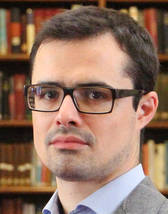Lone-Actor Terrorism: Toolkit Paper 2: Practical Guidance for Security Practitioners
This second toolkit paper of the Countering Lone-Actor Terrorism series focuses on the practical implications of the research project and provides guidance for law enforcement agencies and security officials
Countering Lone-Actor Terrorism Series: No. 10
The aim of the Countering Lone-Actor Terrorism (CLAT) project is to understand lone-actor terrorism in a European context. The project will develop a database of lone-actor cases from across Europe. Its overall objective is to see if it is possible to discern any trends or patterns that could be translated into useful observations or recommendations for practitioners and policy-makers.
This is the second of two toolkit papers in the CLAT series. This paper focuses on the practical implications of the research project and provides guidance for law enforcement agencies and security officials. It aims to offer insights that may be of use to practitioners in Europe (and beyond), supporting the development of strategies to detect and deal with potential lone-actor terrorists and to understand the possible risk posed by persons of interest. This paper is presented in two sections. The first offers guidance on improving the initial detection of potential indicators of extremist behaviour and subsequently for determining whether persons of interest are exhibiting behaviour typical of lone-actor terrorists. The second condenses this advice into two practical toolkits.
About the Authors
Clare Ellis is a Research Fellow in the National Security and Resilience Studies group at RUSI. Her research focuses on counter-terrorism, organised crime and the role of policing in tackling national security threats. She has undertaken research on behalf of the European Commission, and the British and Danish governments, conducting fieldwork in the UK, Europe and West Africa. A regular speaker at international conferences, she is also a guest lecturer at the University of York. Prior to joining RUSI she worked in the criminal justice sector, first in criminal defence and later in the police. Clare holds an MSc with Distinction in Countering Organised Crime and Terrorism from University College London, where her dissertation examined the spatial and temporal distribution of terrorism incidents within post-accord Northern Ireland. She has also studied at the University of Newcastle and the Université Lumière Lyon 2, holding a Bachelor’s degree in Law with French.
Raffaello Pantucci is Director of International Security Studies at RUSI. He has worked at think tanks in London, Washington and Shanghai, and his work on terrorism has been published in Studies in Conflict and Terrorism, Terrorism and Political Violence, Survival, the RUSI Journal, as well as media outlets including The Times, Guardian, Sunday Times, New York Times, Financial Times and Prospect. He is the author of We Love Death as You Love Life: Britain’s Suburban Terrorists (Hurst/Oxford University Press, 2015).
About the Project
The Countering Lone-Actor Terrorism (CLAT) project is co-funded by the Prevention of and Fight against Crime Programme of the European Union, and has been undertaken by a RUSI-led consortium. Partnering institutions include Chatham House, the Institute for Strategic Dialogue (ISD) and Leiden University, one of the founding organisations of the International Centre for Counter-Terrorism (ICCT) at The Hague.
WRITTEN BY
Raffaello Pantucci
RUSI Senior Associate Fellow, International Security


